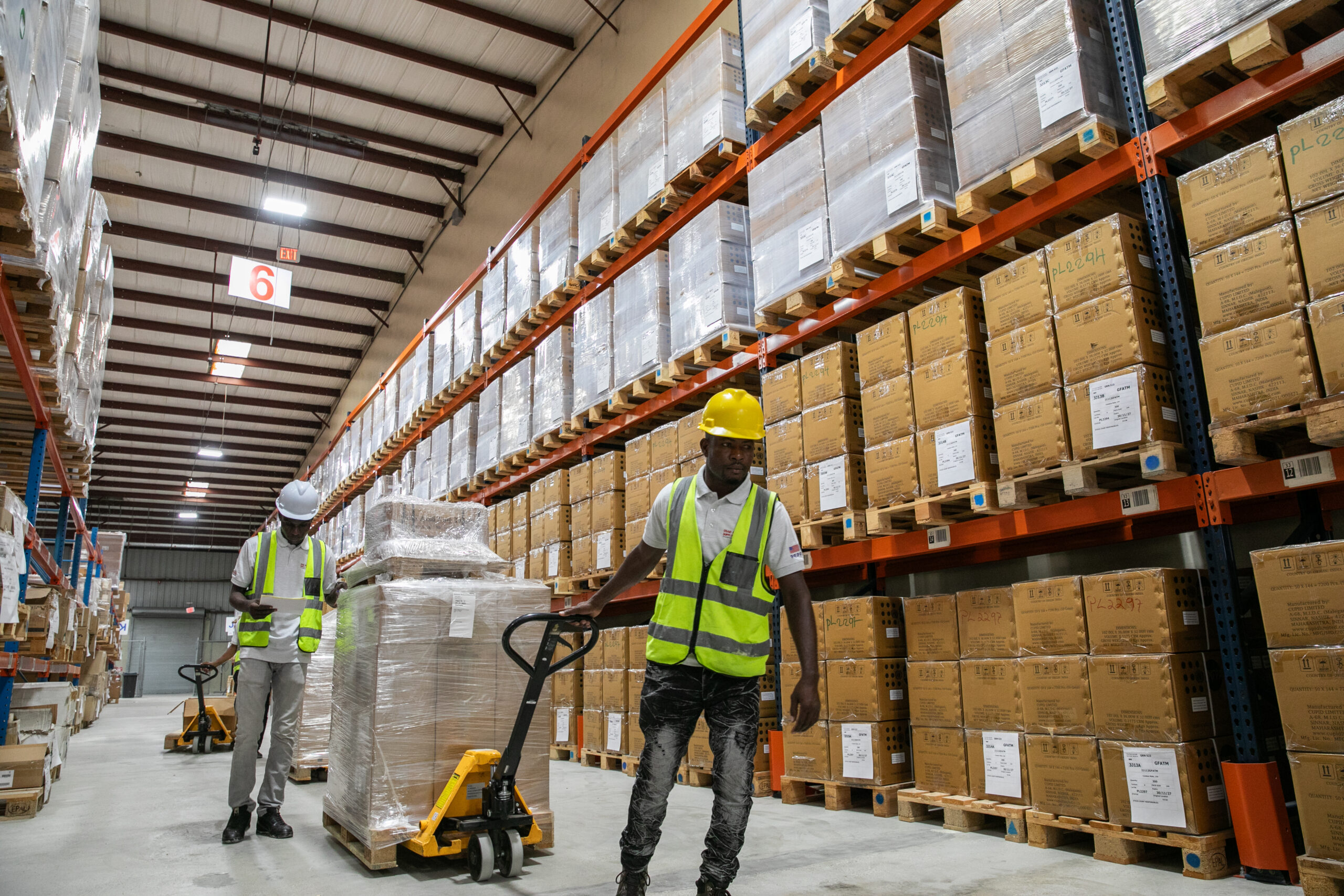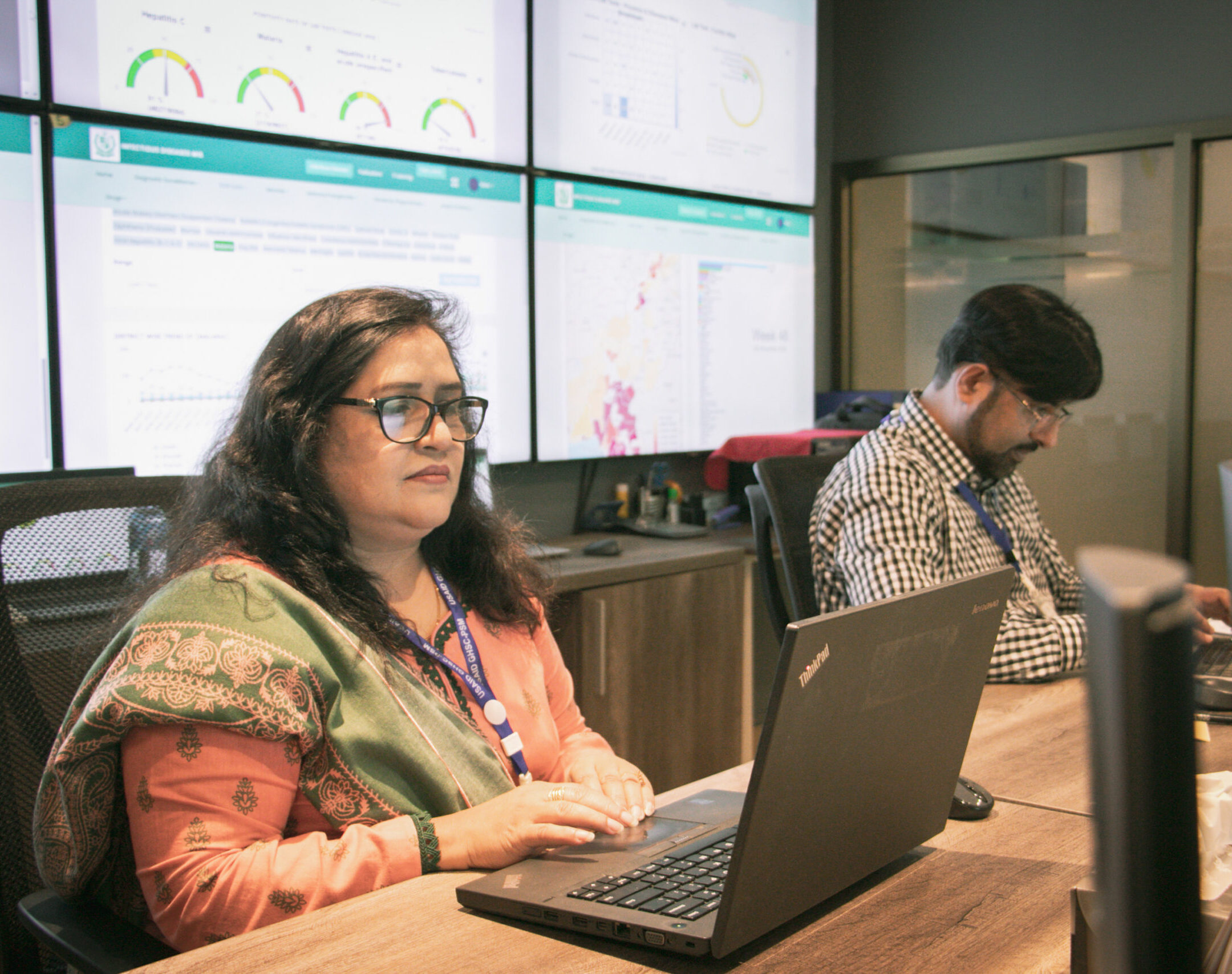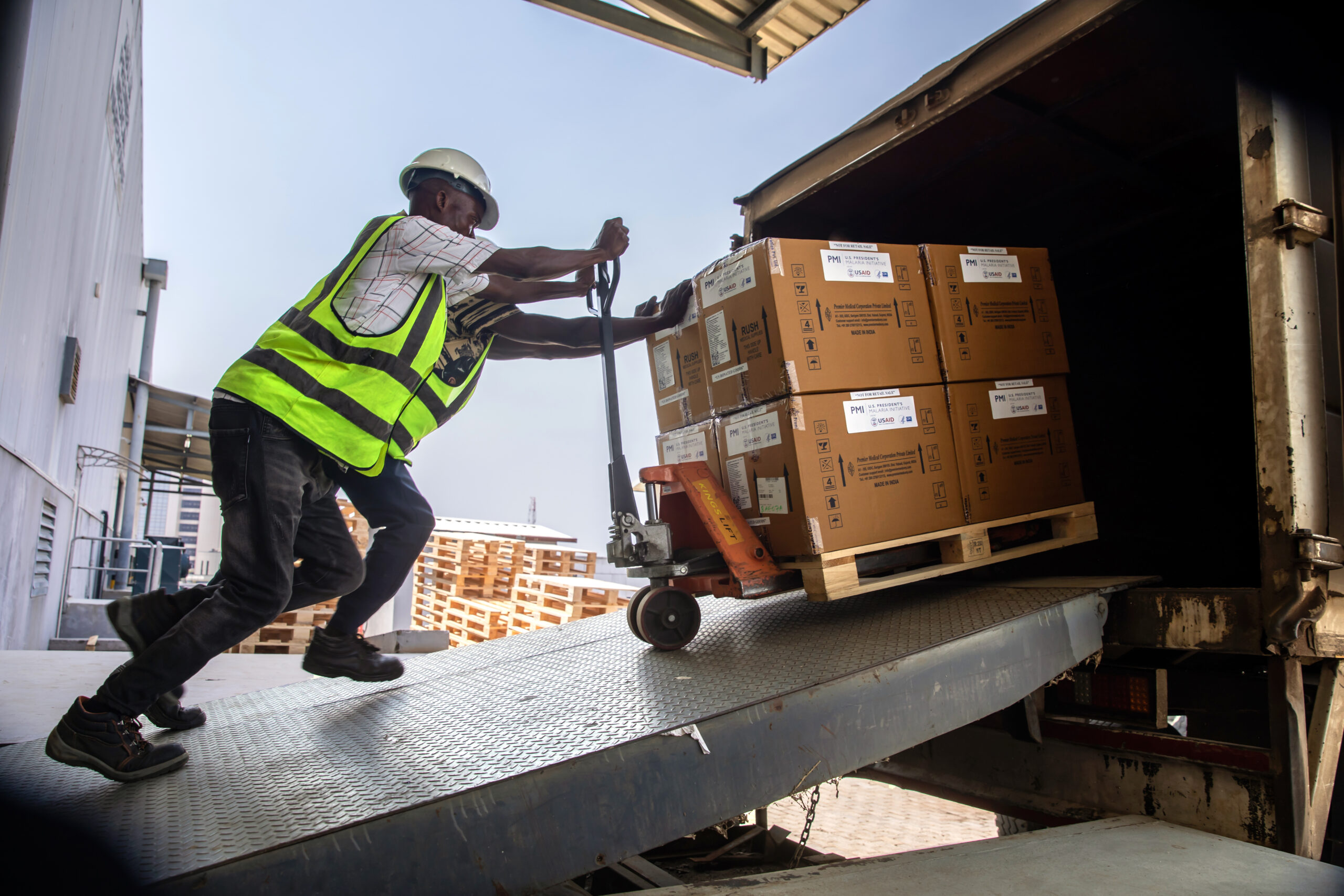Case Study
Ensuring Environmental Stewardship in Global Health Supply Chains
A Supply Chain Designed for Sustainability, Compliance, and Results
Environmental Management

The Challenge
The Global Health Supply Chain Program - Procurement and Supply Management (GHSC-PSM) project is tasked with ensuring the uninterrupted, efficient supply of health commodities, with an underlying mandate to meet increasingly rigorous environmental standards. The rapid scale-up of life-saving health commodities and large-scale procurement, storage, delivery, and disposal of pharmaceuticals and medical supplies worldwide brings immense public health benefits. Yet, it also generates complex environmental risks: hazardous healthcare waste, expired pharmaceuticals, inappropriate disposal practices, and the need for environmentally sustainable warehousing, distribution, and small-scale construction. Across diverse contexts – including Sub-Saharan Africa, Asia, the Caribbean, and Latin America – country teams encounter challenges including inadequate waste management Infrastructure, knowledge gaps, fragmented guidelines and compliance capabilities, and residual waste. These obstacles threaten to undermine both environmental safety and the continuity of health services.Our Solution
A Systemic, Inclusive Environmental Compliance Ecosystem
Technological Solutions and Innovation
- Environmental Compliance Systems: We operationalized a robust Environmental Management System, integrating the central AssurX incident management platform. This digital tool enables real-time tracking, documentation, and closure of waste management incidents across country offices.
- Waste Minimization & Segregation: With a multi-country adoption of color-coded container systems, we standardized waste labeling per World Health Organization recommendations. The implementation of routine waste audits limited co-mingling and facilitated safe handling of infectious, chemical, and general waste streams.
- Reverse Logistics: By leveraging our Quantification Analysis Tool and other advanced analytics for supply forecasting, Chemonics reduced overstock and expiry, and enabled the retrieval of unused, expired, or recalled products through systematic take-back and disposal operations.
- Environmentally Compliant Disposal: We select advanced treatment solutions – such as compliant high-temperature incinerators and autoclaves – via a technical and regulatory screening process. This ensures the safe destruction of waste, validated by third-party inspections and environmental certification.
Building Strong Partnerships
- Specialized Waste Firms: By building strategic partnerships with global and regional waste experts, we are able to ensure access to the latest disposal technologies, transboundary shipment expertise, and on-the-ground audit capabilities.
- Collaboration with Host Country Authorities: In countries like Liberia and Niger, we’ve engaged ministries of health and local regulatory agencies to support the development, endorsement, and dissemination of national waste management guidelines and standard operating procedures.
Capacity Building, Education, and Process Management
- Standardized Training and Operating Procedures: Routine technical training for staff, ministry personnel, and warehouse operators includes waste segregation, handling, storage, and emergency response. Our tailored curricula, developed with local input and aligned with international best practices, ensures context-appropriate knowledge transfer and institutionalization.
- Guidelines and Policy Support: Chemonics continuously adapts and updates project-wide and country-specific guidelines – including waste management plans – to reflect regulatory changes, local infrastructure, and evolving risks. Our stakeholder engagement workshops and guidance documents support all clients and partners to operate with the latest requirements for waste, construction, and product management.


The Impact
A Multifaceted Approach to Sustainable Health Delivery
- Sustained Compliance & Risk Reduction: We have maintained low incident rates, promptly addressed regulatory gaps, and instituted corrective actions through updated standard operating procedures and targeted training.
- Expanded Local Capabilities Ownership: Host country partners demonstrate increased autonomy in managing medical waste—exemplified by the development and roll-out of national-level procedures, waste audits, and in-country incineration operations endorsed by regulatory agencies.
- Scalable Model: The integration of digital compliance systems, tiered partnership structures, and adaptive training is recognized as a model of environmental stewardship scalable to other large-scale supply chain and development interventions.
- Operational Excellence: We have maintained compliance across more than 60 countries, and supported the safe, documented disposal of expired pharmaceuticals and hazardous and non-hazardous waste.
- Environmental and Social Safeguards: We have ensured incineration, landfill use, and recycling adhered to both national and international standards, reducing any negative environmental and health impacts.
- Cost and Risk Reduction: Chemonics’ effective supply planning, capacity building, and negotiated subcontracts saved millions while preventing potentially hazardous surplus and waste.